How are we shaping the future of the farm together?
OUR ETHOS
Our mission, vision and values help guide our decisions and by sharing the cornerstones of our company culture we hope to give you the clearest picture of what makes us tick. The Garlic Farm exists to support stable and secure livelihoods for employees and suppliers, to be sensitive to the land and community and bring smiles and happiness to those who come in contact with what we do.
OUR MISSION
Celebrate the flavour and fascination of good garlic.
Deliver joy to people who visit our farm to eat, stay, shop, play, learn and explore.
OUR VISION
Strengthen and sustain our farm, estate and business with socially and environmentally regenerative methods.
OUR VALUES
Be efficient with resources, protect our planet.
Be respectful to people, look after each other.
OUR ETHICS
Efficiency is relevant to our ecological sensitivity and respect is probably the best single word to capture our ethical intent. Efficiency and respect. It's taken almost three lifetimes of the family business to arrive at those two words. The detail below holds a longer explanation of the journey so far.
Every journey begins with the first step; this was taken by the Boswell family in the 1950s and since then progress from mixed farming to garlic specialists has been purposeful. The farm remains able to thrive because of its customers - thank you if you are one. Happy customers are the result of good produce and service, both of these are down to the team. Without customers there is no team but without a team who cares, there are no customers! This focus on people is why we list our accreditation to the Living Wage Foundation as the first deliverable in our story of business ethics.
OUR COMMITMENT TO SPECIFIC POSITIVE ENVIRONMENTAL IMPACT:
Annual targets:
Food waste: aim for 10% reduction
Energy use: aim for 10% reduction
Water use: aim for 10% reduction
OUR COMMITMENT TO SPECIFIC POSITIVE SOCIAL IMPACT:
Annual targets:
Suppliers: survey to monitor how satisfied our suppliers are with working with The Garlic Farm & improve from baseline. Source goods, products and services locally wherever feasible, and increase the proportion of goods and products sourced locally.
Team: survey to monitor employee satisfaction including: financial security, wellness & safety & improve from baseline
Customers: monitor reviews across various platforms (tripadvisor, dishcult, google, facebook) & improve from baseline
FURTHER QUESTIONS THAT INFORM OUR APPROACH:
Where have we come from, where are we going and what are we learning?
As the family farm has grown over the years, the team and growing family have wanted to do the right thing as well as do the thing right. This is not at odds with our prior generations but the awareness of opportunity for lower impact operations has definitely increased alongside knowledge of soil health, biodiversity and social equality. Celebrating garlic in all its forms is still the cornerstone but knowing that we need to tread lightly is giving us all an extra incentive to look carefully at where we place our feet. And with new tools emerging, we are better able to move forward with a sensitivity to the footprints of the past as well as creating a guide for new paths.
Together, we're steadily figuring out what we don't know about our impact as a business and making progress with what we do know. It's rarely easy and it takes time. The systems enabling us to learn, measure and then improve have themselves got better in recent years. What we have experienced through three generations on this land is that the journey towards a regenerative and respectful solution involves going forwards as well as backwards. Loops and cycles appear more sensitive, useful and productive than a straight run of un-checked progress.
Waste doesn't happen in nature. There is no 'take, make and discard' in the circular system of organic matter. It could be described as the perfect loop. If we were able to use biomimicry production and design modelled on the examination of nature - and apply it to not only our farm but also our business, we would have a useful teacher forever.
Applying this approach to the arable and livestock production and land management of the farm and estate is very slightly more straightforward than mirroring the effort into the other sides of our business. Our aim with conversion to Soil Association organic across all our acreage is not a destination but a stepping-stone toward soil health and biodiversity that gives our natural capital the best chance of looking after itself. Productive, organic and regenerative could be seen as a linear goal but the real hope is that this loop will include all three elements in our circle, constantly ongoing.
The extra physical effort with this arable approach is matched by the extra mental and methodical work within all aspects of the clerical process of reducing impact; it's proper hands-on-deck stuff for everyone, whether physically getting hands dirty or not.
How are we applying what we learn and who is helping us?
As well as garlic with other crops on rotation and livestock, there are small lakes, woodland, pasture and downland as well as buildings both old and new on our farm. It's the latter half of that sentence where the challenges shift. The flow management of the renewable elements on our land take effort, but the support of organisations like the Soil Association, The Sustainable Food Trust, CLA, NFU as well as local groups help guide us.
It's the impact of our buildings, our production, storage and sale of food, our offices, holiday accommodation and restaurant that all need a different kind of stewardship. Instinct, common sense and research did a good job for many years, but we now use additional thorough methods to measure and lessen our impact. Part of the reason for this is so that we formally embed systems into the business to fundamentally shape what the company is for so we can then define our performance by it. In doing this, our aspirations to be a better, low impact business will outlive any single person; longevity is key.
A significant step towards embedding this purpose deep into the fabric of the company, was to engage in B Corp certification. Again, not an easy process and one that takes considerable time and investment. Our reason for taking this step is simple. We want to measure our impact as methodically as we measure our income. As described above, we want this to be as integrated and legalised/structured as filing our company accounts. Financial reporting is a statutory requirement and B Corp insists that companies match this with a legal change to their governance, by building their commitment to environmental and social impact into their Articles of Association a company document that defines their core purposes and lays out the regulations of their operation. This transforms what could be the singular will of a founder or director into a formal, legal map to govern and define the purpose of the company. It's a big deal, very different from the annual box-ticking of some compliance schemes.
The measurements of organic certification, the methods of a regenerative approach and the practise and philosophy of permaculture inform and guide our land management as we learn more about the loops of these natural systems. B Corp tracks the outcomes of this 'outdoor' work, but the structure of the continuous assessment also takes in all aspects of environmental impact, across all outputs of the business. The process is a holistic approach that turns the attention of environmental impact onto everything we do everywhere, which is as it should be.
Using the 'impact assessment' tool from B Corp, with specialist support and guidance from a small team of experts on environmental, social and governance improvements, we discovered that the use of our land was a proportionally smaller part of our overall impact than we had at first understood. The team at Greenheart are still helping us to better understand our ongoing opportunities to improve but it was the far-reaching analysis of our relationship with environmental aspects beyond the crops and animals in our fields that really opened our eyes.
Under the section of environmental management in our impact assessment, the elements of air, water, land and life are all listed and tied to climate impact. All these headings contain a requirement to study our own output from all our activity; whether indoor or outdoor, whether a small product or a big building. Every element of consumption, waste and the ways to mitigate by measurement is listed methodically. It's an impressive structure and what is so heart-warming, is our team's willingness and drive to work through both the initial learning and also the ongoing effort of integration.
Understandably, environmental impact is not just affected by things like the use of our biomass heating system, our solar panels and our external energy supply from renewable sources. It's more than our own water conservation, waste reduction and our attention to toxins and transport. All of these elements and many more are, thanks to the B Corp system and the support of Greenheart, built into a toolkit for our team to measure on site, enabling constant progress.
Can collaboration make a difference?
Where the bigger transition and opportunity rests may be beyond our farm border. It is our environmental impact through the collective and collaborative work with our supply chains where the momentous changes will occur over the next few years.
To supplement the maximum crop volume available from our own and locally tenanted fields, we work with other skilled garlic growers, also known as our "partner farms". We have long-standing relationships with partner-producers for our jarred products like mayonnaise, pickles and chutneys. There are also ancillary items necessary to our operation that we cannot make ourselves, are not produced locally and in certain cases only made in far flung locations, one example being the keyboard I am typing on right now.
Whilst all areas of the business are acclimatising to not just ethical, but environmentally careful choices, some options are limited. However, this gives us extra motivation in doing things efficiently across all of our sites: our restaurant uses local produce where possible and our holiday accommodation commissions local supply and contracting for everything that it can. Equally, the side of our business that sends garlic and other garlicky products out to customers, does so in home-compostable packaging and the farming side of our business is developing sophisticated ways of measuring greenhouse gas emissions and other outputs in the interest of decreasing our footprint.
By bolting in an environmental improvement system to the framework of not only the farm but also our supply chain, we connect to a broader network of change. It is powerful, necessary and we are happy to be part of a shared solution to a shared challenge.
Another organisation aiming for radical improvement that we take inspiration from is based only a few miles from us. The Isle of Wight is home to the Ellen Macarthur Foundation; a charity that has a global vision for the ultimate expression of efficiency. Their mission is to accelerate business, academia and policymakers toward a circular economy 'a regenerative system that aims to benefit business, society and the environment by separating growth from the consumption of limited resources'. Working with the world's most powerful companies and organisations, their influence is significant and by concentrating on massive industrial outputs they are helping to engineer big system changes. At our scale, the segment we are focusing on from the Ellen Macarthur Foundation is the separation of growth from consumption of resources. On the farm, all biological entities are, by nature, regenerative as long as we enable the right conditions. Our treatment of technical materials and non-renewables is where the circular system guidance really helps us. It's possible to interpret a circular system as one that focusses on recycling. Keeping products and technical materials in use is part of the circular approach but recycling is actually the last resort of the circular economy. The system advocates technical cycles to recover and restore products, components, and materials through schemes like reuse, repair and remanufacture.
The efficiency gains for a small business like ours, that operates within farming, food-production, hospitality and retail are not, by themselves, going to reverse wasteful and damaging global outputs. But just as the farmland under our feet is improved by a sustained effort toward regeneration, the ripple effect out to our network of both supply chain and consumer, does hold the opportunity for bigger reach and a collaborative move toward efficiency.
Do people as well as the planet benefit from this effort and innovation?
The second word we identified in how to approach decisions and direction is respect. This word could be used as the reason to concentrate on the environmental efficiencies described above. A respect for resource is a great way to stimulate the protection of it and of the planet as a whole. For the purpose of extracting our declaration into two words, we attribute respect to our planet, of course, but the main focus in our context is respect for people and for future generations.
We are a family business; a growing team, and we work with an increasing number of suppliers. Happily, we have visitors to our farm as well as consumers of our products across the country and abroad. From discussions around the farmhouse kitchen table, to daily group chats, work with our teams on site and with partner-producers as well as our interactions with customers, respect is a word worth remembering. It is not just communication that is influenced by this word, but a holistic approach to the people, community and partnerships that both support and are reciprocally sustained by the trade of the farm business.
The instinctive sense of what is sensible for and sensitive to the people involved in and around the company has, much like our environmental intent, gained a systematic external measurement and verification. B Corp certification both guides as well as measures our impact on social capital as much as it does environmental capital. The two are so inextricably linked that it seems slightly absurd to separate them, but a useful example of how intertwined the effect that one has on the other is held within the description of the 17 Sustainable Development Goals. On the face of it, these 'global goals' could be seen as just that: global, rather than local or regional. Goal 1: no poverty, goal 2: zero hunger and goal 6: clean water and sanitation, could seem to be more relevant to developing or fragile countries. But closer study of these and the other fourteen goals reveals tangible targets for the practical issues that impact the equality of people, no matter where they are from. This focus on people, at the heart of the goals to create a better world by 2030, puts both the responsibility as well as the reward in the hands of all humans - especially those who have the privilege of money, food and taps.
People have the power to protect their planet as well as each other. These sustainable development goals are thorough, tangible, target-driven and necessarily ambitious instructions on how to do this. Not only does B-Corp refer to and reference these goals throughout their measurement process, but other charities, NGOs and increasingly more large corporate bodies and overtly commercial companies also do. This people-centric focus underpins not only the inclusive and sustainable innovation that will help enable the reversal of harm to the planet, but the goals aim to do this by addressing a respect between its people.
Here at the farm, if our work is done well, our customers enjoy it. By working really hard and with the right help, we can do our work with very low impact and eventually a net-positive effect on the planet - putting more into society, environment and economy than we take out. The ultimate aim is for us to achieve these things in the most respectful way possible. Work is work, there's no way round that, but the hope is for work at the farm to be as enjoyable as possible and from the research we are doing, feeling safe, empowered and respected, is key to this. Being an accredited Living Wage business is an important part of our commitment to each other. We join one of 7,000 businesses in the UK who make this pledge to pay beyond the Government living wage and increase this based on actual calculations on the real costs of living.
An efficient business treating its community and planet with respect is not enough. It also has to be a resilient entity or the foundation from which it plays its part in building a better future, will be blown away by businesses that mercilessly exploit resource for survival.
Sustainability is such a loaded word; somewhere between the work of Greenpeace who help defend our natural world and the UN who fight for dignity and equality, we have B Corp and the Ellen Macarthur Foundation who are helping business be sustainable in every sense of the word. Resilience is key to this; strong businesses have the ability to keep going and if what they are doing is efficient and respectful, happy days.
What does this all mean and what do we do next?
A lot of the work behind the themes described here is costly. Some of this input and investment will translate to longer term savings, both financial, environmental and human, but some of it won't. All of it is important, but we can only keep doing this if the business performs; commercial resilience is a reality but among our brilliant people, one or two are good at numbers. It seems dull to say, but the business can only perform if the environment allows it and the people not only encourage it but commit to it.
We said we'd stick to two words: efficiency and respect. This article has been longer and there is way more to come; we will substantiate this ongoing work with a publicly available declaration of our business impact showing statistics and figures once uploaded through our B-Corp impact report.
Thank you very much for reading all the way through this! Our appeal to you now is to help us keep our promise of two words by doing two things:
1.Eat more good garlic.
2.Tell people about the garlic and spread the two words.
The board of directors for The Garlic Farm are:
Natasha and Barnaby Edwards, Colin, Jenny and Hugo Boswell.
Steven Holbrook is a Non Executive Director.
Sarah Shaikh is an employee board member.













